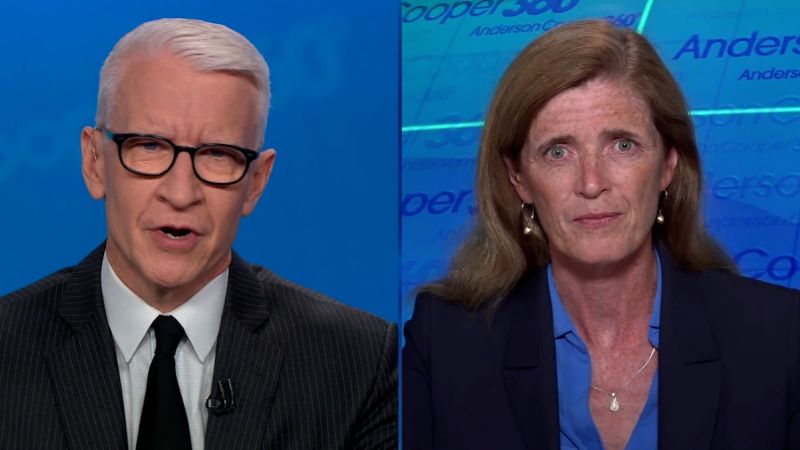Former USAID administrator Samantha Power has issued a stark warning regarding proposed funding cuts to the United States Agency for International Development (USAID). She cautions that such reductions could have “devastating” consequences, potentially endangering the lives of millions worldwide. Power’s comments come amidst ongoing debates in Washington over foreign aid budgets, which have seen significant scrutiny and proposed reductions.
Power, who served as the head of USAID from 2013 to 2017, emphasized the critical role the agency plays in delivering life-saving programs across the globe. “The gutting of USAID’s budget could lead to catastrophic outcomes,” she stated, highlighting the potential for increased mortality rates in vulnerable regions heavily reliant on U.S. aid.
The Role of USAID in Global Health
USAID has long been a cornerstone of U.S. foreign policy, providing assistance in areas such as disaster relief, economic development, and health care. The agency’s initiatives have been instrumental in combating diseases like HIV/AIDS, malaria, and tuberculosis, and in supporting maternal and child health programs.
According to USAID’s official reports, their efforts have helped save millions of lives by improving access to essential health services and by supporting initiatives that address food security and nutrition. The proposed cuts, therefore, raise significant concerns about the continuation of these vital programs.
Expert Opinions and Reactions
Experts in international development and public health have echoed Power’s concerns. Dr. Lisa Smith, a global health specialist at Johns Hopkins University, noted, “USAID’s programs are a lifeline for many communities. Reducing funding could reverse decades of progress in global health.”
“USAID’s programs are a lifeline for many communities. Reducing funding could reverse decades of progress in global health.” – Dr. Lisa Smith, Johns Hopkins University
Meanwhile, advocacy groups have mobilized to lobby Congress against the proposed cuts. Organizations such as ONE Campaign and Global Citizen argue that reducing foreign aid could undermine global stability and increase the risk of pandemics by weakening health systems in developing countries.
Historical Context and Comparisons
The current debate over USAID’s funding is not without precedent. Similar discussions have arisen in past administrations, often reflecting broader ideological divides over the role of foreign aid in U.S. policy. Historically, USAID has faced budgetary challenges, yet has managed to maintain its core programs through bipartisan support.
During the Reagan administration, for example, USAID’s budget was scrutinized, but ultimately, the agency’s strategic importance in promoting U.S. interests abroad ensured continued funding. The current situation, however, presents unique challenges as global needs have expanded significantly in the face of climate change, migration crises, and emerging health threats.
By the Numbers
- USAID’s budget for fiscal year 2023 was approximately $41 billion.
- The agency operates in over 100 countries worldwide.
- USAID’s health programs have contributed to a 44% reduction in child mortality since 1990.
Implications and Future Outlook
The potential cuts to USAID funding could have far-reaching implications, not only for the countries directly receiving aid but also for the United States’ global standing. Reductions in aid could lead to increased instability in vulnerable regions, potentially exacerbating issues like migration and terrorism, which have direct impacts on global security.
Looking ahead, the debate over USAID’s budget will likely continue as policymakers weigh the costs and benefits of foreign aid. The agency’s supporters argue that investing in global health and development is not only a moral imperative but also a strategic necessity for maintaining international stability and protecting U.S. interests abroad.
As Congress deliberates on the budget, the future of USAID’s programs hangs in the balance. The outcome will determine not only the agency’s capacity to deliver aid but also the broader role of the United States in addressing global challenges.
